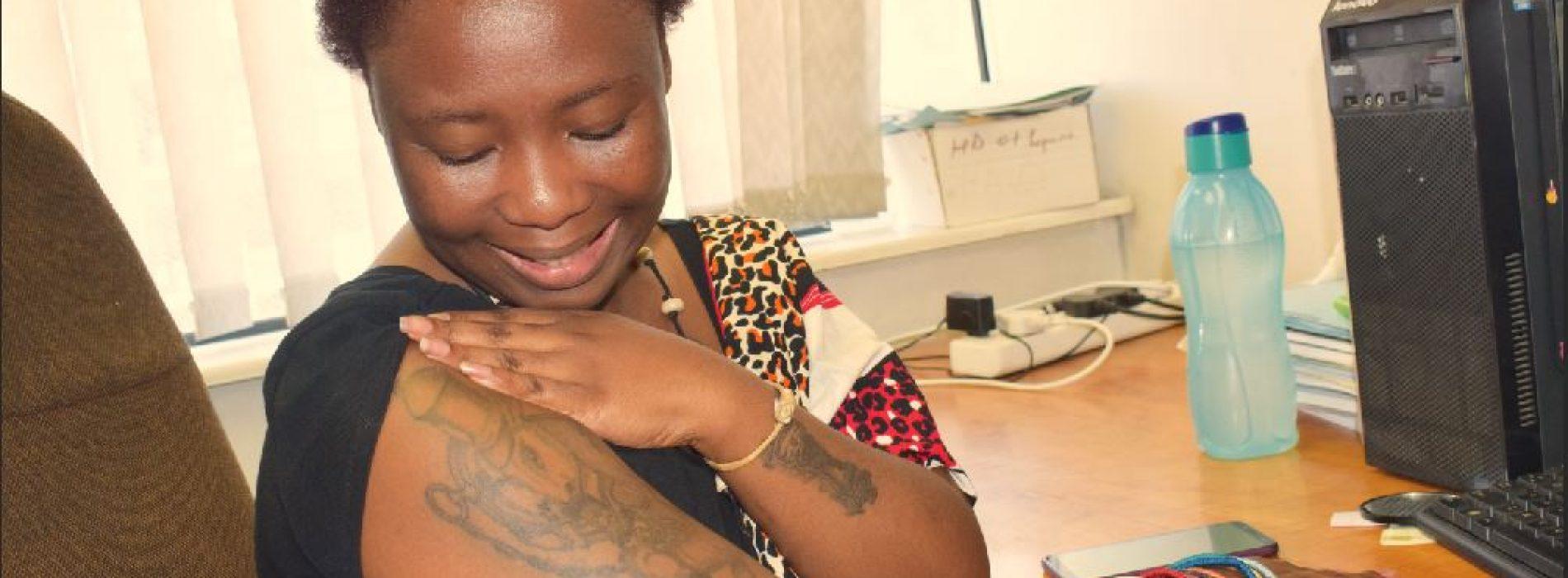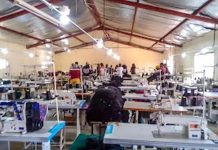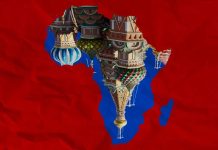Africa-Press – Lesotho. FROM being associated with evil, tattoos are turning into a big hit in Lesotho. And in a country that is still largely conservative, getting one’s body inked often results in clashes with some family members for many young adults hooked to the tattoo craze.
But for people such as Tšepiso Tsikoane, the troubles – and pain – are worth it and there is no stopping them. “The pain is bitter sweet,” says the 34-year-old.
“It hurts but it is the most appealing pain.
Raised in a Catholic family, inking her body meant becoming the black sheep of the family and for many years she endured repeated rebuke.
With many of her family being priests or prominent members of the church, Tsikoane was not spared the religious perspective of tattoos. “Family meetings have been called to put me into line. They thought it was just a phase (that would pass) but even at 34 I have not passed that phase.
In the past, the taboo surrounding tattoos drove many to hide in the shadows even though linyao (facial scratched tattoos) are an example of traditional or tribal tattoos that have existed for centuries.
The global history of tattoos is so vast and many cultures have embodied body tattooing to signify culture and beliefs. Locally, apart from the cultural linyao, tattooing has largely been frowned upon.
However, body art is a trend that is increasingly being embraced as normal by some Basotho and even the corporate world such that tattoo parlours are mushrooming like never before.
For Tsikoane, the dance with body art started in 2003 when she was still a student at the National University of Lesotho. After travelling to Bloemfontein to get her first tattoo, Tsikoane chickened out and returned home with a belly ring instead.
But later she became braver and the result: more than a dozen tattoos to date. On her upper left arm is a rabbit with a death card (Ace card) inspired by Alice in Wonderland, an animation of a girl who disappears down a rabbit hole to a place full of bizarre adventure.
It was not just a tattoo for Tsikoane. It was part of a search for answers and inspired by part of the movie where Alice asks the white rabbit how long ‘forever’ takes and the rabbit responds: “Sometimes just one second”.
Says Tsikoane: “I always wondered when the pain will ever end, what it meant when someone said you are mine forever and when it ends, why it ends. ”
“The death card signifies the state I was in.
I felt trapped by death and nothing looked positive,” she says. It is one of the 15 tattoos that Tsikoane has had to demonstrate her emotional state. Just below the death card tattoo is one of a boiling kettle.
“I wanted to release (some) steam,” she says. For Tsikoane, almost every tattoo she has signifies a stage and state of mind at the time it was inked.
Tattooing has become a form of therapy for her. Pain, love, hurt, depression and happiness: they are all engraved on her body. She has been publicly ridiculed and shamed for having so many tattoos and piercings on her body.
“I have had people call me to prayer sessions so that they can cast out the demons. One actually suggested that I pray every morning to release the demons but I know that nothing in the tattoos I have was done demonically,” she says.
When she started work as a civil servant, fellow employees passed bizarre looks and talked about her behind her back but that did not stop her from getting more tattoos done.
“’Mathato Mosisili congratulated HR at the time for embracing change and I was forever grateful for the opportunity,” says Tsikoane.
“I admire how Basotho are becoming liberal to the culture of body art, this is a good step in accepting differences in people,” Tsikoane says.
The increasing acceptance of body art in Lesotho has opened more business opportunities for artists. Paila Matasane, popularly known as Phoenix, is a professional tattoo artist who has been in the business for seven years.
His interest in tattooing was birthed in Pretoria when, as a 16-year-old he befriended someone who worked at a tattoo parlour. At 17 years old, Matasane got his first tattoo and now he helps others get theirs too in Lesotho.
“I worked with different reputable artists in South Africa and one day when I visited home, I realised there was a big market for tattooing,” says Matasane.
He partnered with Kobila Mafo, who was the owner of Xklusivz, an apparel business. “I had my parlour on one corner to embody tattooing into the business,” Matasane says.
He studied graphic design and fine arts to tune up a skill he had nurtured since growing up. He says the stereotype around body art is slowly dying. “I believe everything can be associated with demons.
You have a black cat, you are a witch, you have certain piercings it is evil so all of those are standards placed by people who are stereotypical,” he says.
He tells his clients not to worry about the stereotypes. “It is just a piece of art on your body,” he says. “There is no reason to stress over it. If it was done in a happy place then that’s all good and mighty, embrace the journey you go through,” says Matasane.
His clientele comprises of professionals. “It is not only the young lads but older folks as well. ”
“You would think it is only in fashion for youngsters but the opposite is true,” says Matasane.
He adds: “The market is there and everyone with good talent and love for art can make a living from it. The thing about art is everyone has a unique technique and not one artist can master all techniques so we need the variety we can get in the business.
Another man making a living from inking tattoos, Bohlokoa Matlosa, still regards himself as an amateur because it has just been two years since he started out. He perfects his trade by extensively researching on the tattooing business.
“You need to know the type of skin you are dealing with, the kind of machine you are holding and how deep you need to go into the skin to have what you want,” Matlosa says.
“All this requires an artist who reads and researches because this is the work that when its done it cannot be reversed,” he says. He has crafted 100 tattoos on customers so far. On his own body, he has done five tattoos since 2018.






